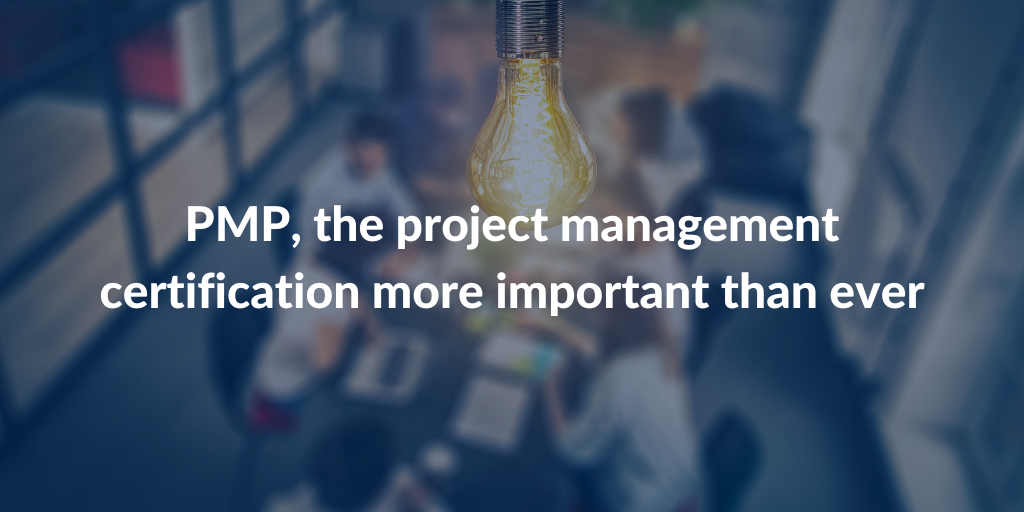In this interview we will speak to Haykel KCHAOU to understand the recent developments of the Project Management Professional (PMP) certification and its importance and relevance in the professional world.
Can you share your feedback on the changes made to the Project Management Professional (PMP) certification and the release of the 7th edition of the Project Management Body Of Knowledge (PMBOK)?
This is the most important development in the history of PMI and the PMP certification. Since 1996, version 1 of the PMBOK presented a project as an intersection of a group of processes and knowledge areas. This approach was considered successful as it gave each project stage the inputs, tools and techniques needed to create an output (a charter, a plan, a report etc.). In general, professionals like to map out a complicated concept in the form of a process in order to master it better.
The PMBOK has not seen any real changes since its creation until version 6. The updates consisted only of adding a few processes without reviewing the core of the model. An agile guide on top of the PMBOK version 6 was published in 2017 to fill the lack of agile orientation of this version.
In a context where adapting to customer needs and creating value in a continuous way is becoming a priority, PMI released in August 2021, version 7 of the PMBOK. This new version reflects PMI’s new mindset by taking a step back from the process-based vision of PMBOK version 6, but also from methodologies such as PRINCE2 and Scrum or others.
This new version answers the question “What to do?” and not “How to do it?”, and thus goes back to the fundamentals of project management from a value creation perspective by presenting 8 key performance areas to manage a project successfully.
The new version is based on universal and abstract principles that apply regardless of the context, methodology and predictive, adaptive or hybrid approach. Thus, it allows a better adaptation to the context by taking into account the perpetual changes in the organisation and the diversity of practices.
From 2021 onwards, the exam has also undergone major changes. Indeed, PMI announces its new orientation which consists in saying that the objective is not to have professionals who know the PMBOK by heart but rather who master the outlines for a good project management. PMI does introduce agility in the exam questions up to 50%.
In your opinion, how can this certification improve the daily professional life of project managers? How can the PMP certification help with the current issues facing companies?
We believe that the latest updates already mentioned reinforce the positioning of the PMP certification in the professional world and of the Project Manager as the team leader. The certification repositioned soft skills at the centre, which are considered today as indispensable skills in the world of project management.
PMP focuses on topics such as emotional intelligence, personality analysis, conflict management, knowledge transfer, leadership etc. PMI is also aware of the importance of projects in the digital world and digital transformation, and the need for a Project Manager to have transformational leadership skills. Organisational change management models such as Kotter’s model, ADKAR (Awareness, Desire, Knowledge, Ability and Reinforcement) or a contextual complexity assessment such as Cynefin’s model are well covered in the certification.
Recent issues experienced by organisations, such as project management in an epidemic context, or the transversal impacts of the regulatory context, such as the General Data Protection Regulation (GDPR), are well addressed by PMP through the themes of virtual teams and compliance.
To sum up, we can say that the PMP certification through these three new domains, namely people, processes and business environment, allows professionals to benefit from a toolbox with a balanced content between technical, human and contextual aspects but also adaptive regardless of the predictive, agile or hybrid project management approach.
Furthermore, I see the PMP certification as the core on which to explore and deepen other themes. For the PMI, a Project Manager must always be in the mindset of continuous improvement on skills and knowledge.The certified will have access to guides and standards to be explored for certain specific themes (project complexity management, risk management, configuration management etc.) on the PMI website.
Everyone can develop their soft skills through other dedicated training courses, for example on emotional intelligence, processes, personality analysis, etc. It is possible to be part of communities of Project Managers, for example the PMI Chapter Belgium, in order to participate or contribute to the preparation of events, congresses and webinars.
All these activities help to maintain the PMP certification and to justify its renewal to the PMI, but above all they allow you to continue to improve your skills, to benefit from quality networking, to stay up to date and to learn more and more to remain efficient.
How would you advise candidates to prepare for the exam in order to successfully obtain the certification?
Preparing for the PMP® exam is not an easy task. It requires commitment and dedication, in addition to choosing the right training organisation. In my opinion, the success of the PMP® certification depends on training with a PMI accredited partner, such as QRP International.
Moreover, a 35-hour training course is essential for the eligibility file to be sent to PMI before taking the exam.
Choosing an Authorized Training Partner (ATP) gives you access to official PMI material and the most reliable sources for preparing your certification. In addition, the training is led by a trained and accredited expert who follows the guidelines announced by PMI in order to facilitate the preparation phase for candidates.
Would you like to have more information about the PMP certification? Have a look at our website or write to us!









